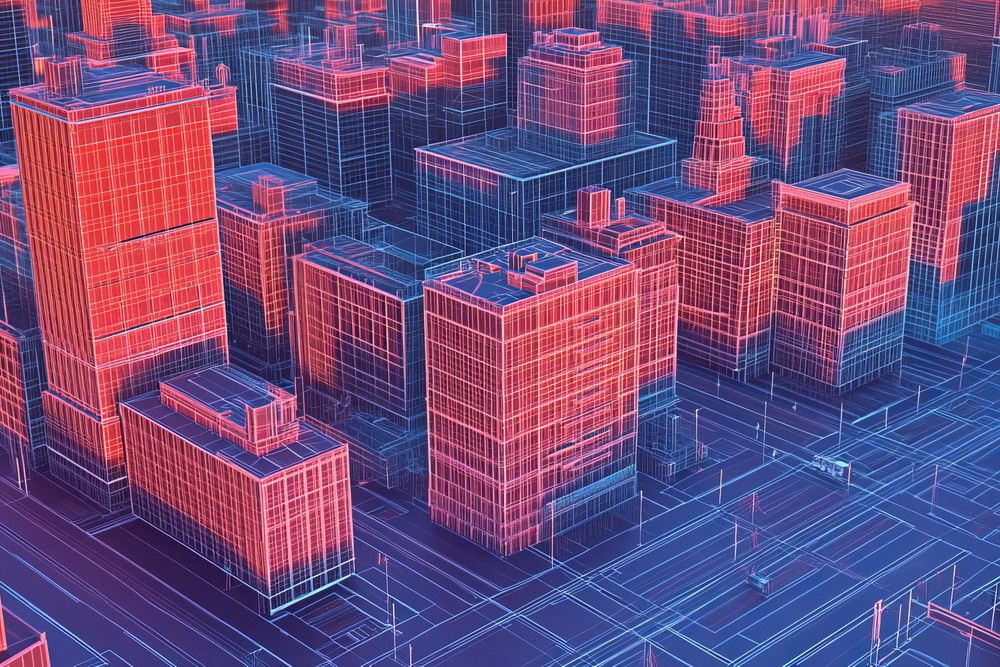Are you ready to embrace the power of the sun?
As the demand for clean and renewable energy continues to rise, more and more businesses are turning to solar power as a solution. And with the increasing need for space to host solar farms, landowners like yourself have a unique opportunity to tap into this lucrative market.
But before you jump in, there are several considerations to keep in mind. From the benefits of leasing land for these farms to the steps involved in the leasing process, this discussion will guide you through the ins and outs of harnessing the sun for profit.
So, what are you waiting for? It’s time to explore the business of leasing land for solar farms and discover how you can be a part of the solar revolution.

The Growing Demand for Solar Power
The demand for solar power is rapidly increasing, driven by its numerous environmental benefits, cost-effectiveness, and technological advancements.
As the world grapples with the devastating effects of climate change, the energy market has experienced exponential growth. In fact, according to the International Energy Agency (IEA), sun power is the fastest-growing source of electricity globally. This surge in demand can be attributed to the increasing awareness of the environmental impact of traditional energy sources such as coal and oil.
Solar power is a clean and renewable energy source that produces zero greenhouse gas emissions during operation. This not only helps reduce air pollution but also mitigates climate change and its associated risks. Moreover, it is becoming increasingly cost-effective. The cost of solar panels has significantly decreased over the years, making it more accessible to consumers and businesses alike. In fact, the cost of sun energy has fallen by over 80% since 2010, according to the Solar Energy Industries Association (SEIA).
Technological advancements have also played a crucial role in the growing demand for solar power. Innovations such as improved solar panel efficiency, energy storage solutions, and smart grid systems have made sun power more reliable and efficient. These advancements have further bolstered the attractiveness of sun power as a viable alternative to traditional energy sources.
Benefits of Leasing Land for Solar Farms
Leasing land for solar farm offers a multitude of benefits. One of the primary benefits is the significant increase in renewable energy production. Solar farms harness the power of the sun to generate electricity, providing a clean and sustainable energy source. With advancements in technology, solar panels have become more efficient and cost-effective, making solar farms a viable option for meeting energy demands.
In addition to environmental benefits, leasing land for solar farms also presents economic opportunities. Solar farms create jobs in construction, installation, and maintenance, stimulating local economies. Furthermore, landowners can generate steady income by leasing their land for solar development, providing a reliable revenue stream.
Leasing land for sun farms also contributes to land preservation. By utilizing existing open spaces for installations, we can minimize the need for further land development. This helps protect natural habitats and biodiversity, ensuring a sustainable future for generations to come.

Considerations for Landowners
As a landowner considering leasing your land for a solar farm, there are several important considerations to take into account that can maximize the benefits and potential of this opportunity.
Firstly, you need to be aware of the legal requirements associated with leasing land for a solar farm. This may include zoning regulations, environmental permits, and compliance with local, state, and federal laws. It’s crucial to consult with legal professionals who specialize in renewable energy to ensure that you meet all the necessary legal obligations.
Financial considerations are another crucial aspect to ponder. While leasing your land for a solar farm can provide a steady source of income, it’s important to carefully evaluate the financial terms of the lease agreement. Factors such as lease duration, rental rates, and payment structure should be thoroughly analyzed to ensure that the financial benefits align with your expectations and long-term goals.
Additionally, you should consider the potential impact on the value and use of your land. Leasing your land for a solar farm may affect its marketability, as well as limit other potential uses such as agriculture or development. Conducting a comprehensive cost-benefit analysis can help you ascertain whether leasing your land for a solar farm is the most financially viable option for you in the long run.
Steps to Leasing Your Land for Sun Farm Development
To successfully lease your land for solar farm development, it’s essential to follow a strategic and well-planned process that maximizes the potential of this opportunity. As a landowner, there are several important steps you should consider.
First, conduct a thorough assessment of your land’s suitability for solar farm development. This includes evaluating factors such as solar resource potential, topography, access to transmission lines, and any environmental or regulatory constraints. Engaging with a solar developer or consultant can help you navigate this process and ensure an accurate assessment.
Next, it’s crucial to engage with the local community and stakeholders. Building strong relationships and addressing any concerns early on can help smooth the development process and garner support for your project.
Once you have determined the feasibility of your land, negotiate and execute a lease agreement with the solar developer. This agreement should cover aspects such as lease term, rental rates, project obligations, and dispute resolution mechanisms. Consulting with legal and financial experts can help ensure a fair and favorable agreement.

Maximizing Profit: Tips for Successful Solar Farm Leasing
By implementing strategic and innovative approaches, you can optimize your profit potential when leasing your land for solar farm development. To maximize your profits, it’s essential to consider various solar farm development strategies and take advantage of financial incentives offered in the industry.
One effective strategy is to negotiate favorable lease terms. Ensure that your lease agreement includes provisions for annual rent increases based on the Consumer Price Index (CPI) or a predetermined percentage. This will help you keep up with inflation and secure a steady income stream.
Another strategy is to explore the possibility of entering into a power purchase agreement (PPA) with the solar farm developer. PPAs guarantee a fixed rate for the electricity generated by the solar farm over an extended period. This can provide you with a stable and predictable revenue stream.
Additionally, consider leveraging financial incentives such as tax credits, grants, and subsidies offered by federal, state, and local governments. These incentives can significantly reduce your upfront costs and increase your return on investment.
Furthermore, it’s crucial to work with experienced solar farm developers who’ve a track record of successful projects. They can provide valuable insights and guidance to help you navigate the complexities of solar farm leasing and maximize your profits.
Frequently Asked Questions
What Are the Potential Environmental Impacts of Leasing Land for Solar Farms?
Leasing land for solar farms has potential environmental impacts. Biodiversity conservation may be affected due to habitat loss, but community engagement can help mitigate these issues and promote sustainable development.
How Long Does the Leasing Process Typically Take From Start to Finish?
The leasing process for land for solar farms typically takes several months to complete, considering legal requirements, environmental impact assessments, and zoning regulations. However, the financial benefits and incentives for landowners make it worth the wait.
Are There Any Specific Zoning Requirements or Restrictions for Solar Farm Development?
Zoning requirements and environmental considerations are crucial for solar farm development. Specific regulations may exist regarding land use, setbacks, and noise levels. It’s important to research and comply with these guidelines to ensure successful and sustainable solar farm projects.

What Financial Incentives or Subsidies Are Available for Landowners Who Lease Their Land for Solar Farm Development?
You’ll be pleased to know that there are various financial benefits and government incentives available for landowners who lease their land for solar farm development. These incentives can make the venture financially attractive and encourage sustainable energy production.
Can Landowners Still Use Their Leased Land for Other Purposes, Such as Farming or Grazing Livestock, While the Solar Farm Is in Operation?
While the solar farm is in operation, landowners may face land use restrictions that limit their ability to utilize the leased land for other purposes such as farming or grazing livestock. These restrictions have implications for local communities.





